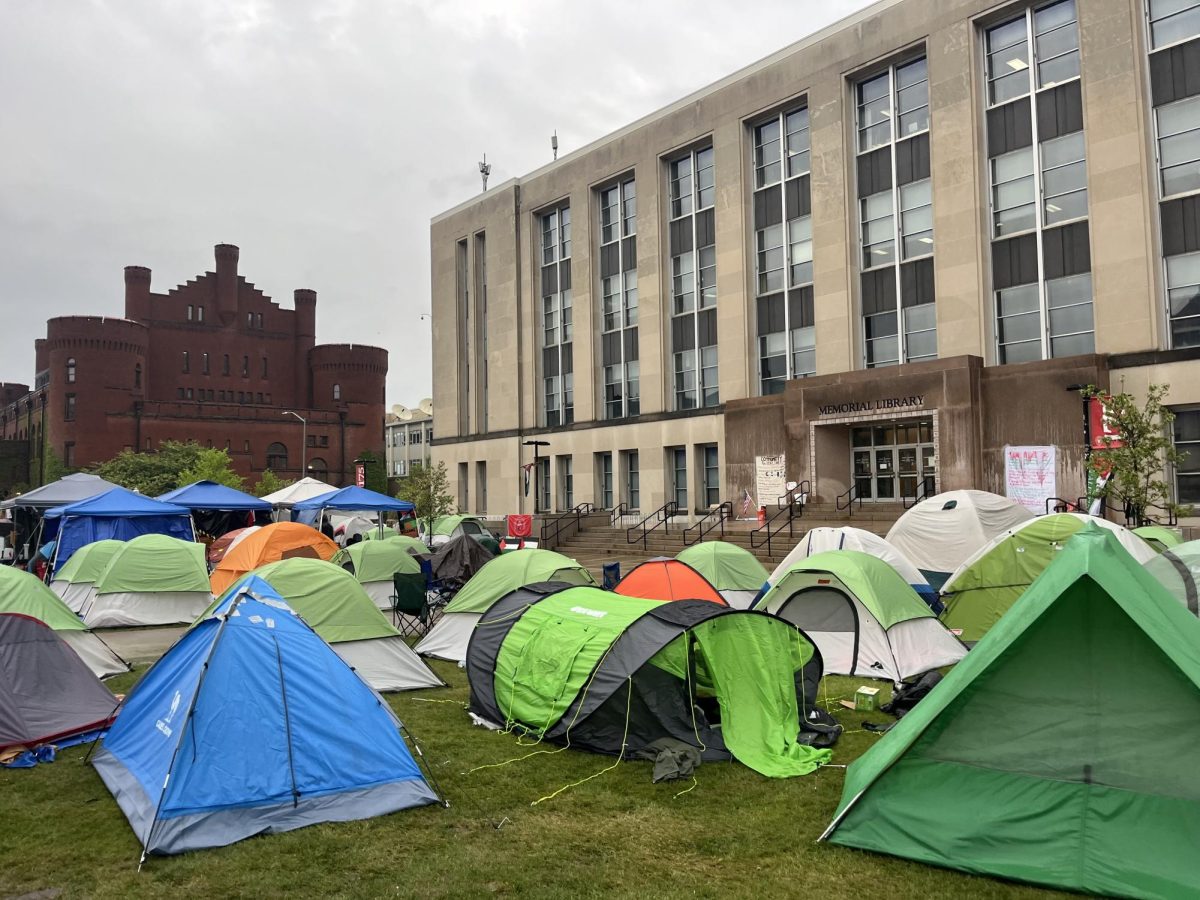
Bill Marler’s full lecture
A prominent injury lawyer and expert in food-borne illness litigation kicked off a new Distinguished Lecture Series project on campus Monday, saying his experience and involvement in food safety has influenced his own consumption choices.
The first speaker in the Changemakers@UW series, Bill Marler, focused on how the law firm he works for, Marler Clark, decides which cases they take and the tools they use to prove food has been contaminated. He said they look at a client’s symptoms, food history, medical attention, suspected sources and whether anyone else has become ill.
“A lot of times what you hear about in the media are what people called frivolous lawsuits. What we try very hard to do is…to really look at all aspects of a case and whether or not we can stand in front of a jury in good faith and argue our client or the family of our client should be compensated,” Marler said.
Marler estimated that about 325,000 people are affected by food-borne illness every year in the United States and around 5,000 people die from them annually. He said food-borne illnesses cost the country $7 billion a year.
“We poison a lot of people,” Marler said. “It’s a serious threat to national health and a serious threat to local health.”
According to Marler, there is a difference between strict liability cases, where a product is unknowingly harmful to the public, and negligence or punitive damages cases, where the manufacturer may know their product is deficient in some way.
“The only defense is prevention. I’ve never sued someone who hasn’t poisoned anybody, so if you haven’t poisoned anybody, I don’t get to sue you. Wishful thinking does not help,” Marler said. “It puts pressure on those manufacturers that most likely could correct the problem in the first place.”
In terms of his own eating habits, Marler said he likes to keep it simple and he stays away from foods like hamburgers, sprouts and bagged lettuce, which can become easily contaminated. He said there are a lot of diseases present now that people did not have to deal with when he was younger, and eating has become more of a “crapshoot.”
Marler added what he hopes people take away from his speech is how the type of law he practices can generate change in society and how he hopes his cases can increase public awareness of the risks of eating certain foods, especially mass-produced foods.
“Most people can’t stand trial lawyers, and for the most part that’s for good reason, but I want to give you…why I think what I do matters, and specifically in respect to food safety,” Marler said.
Renae Zimmerman, University of Wisconsin sophomore, said she enjoyed the speech and felt Marler did a good job of addressing food safety issues.
“Not enough people know enough about what could happen and understand the risks involved. I don’t think it’s put out there enough,” Zimmerman said. “When I go to a restaurant, it definitely might affect what I decide to order.”












